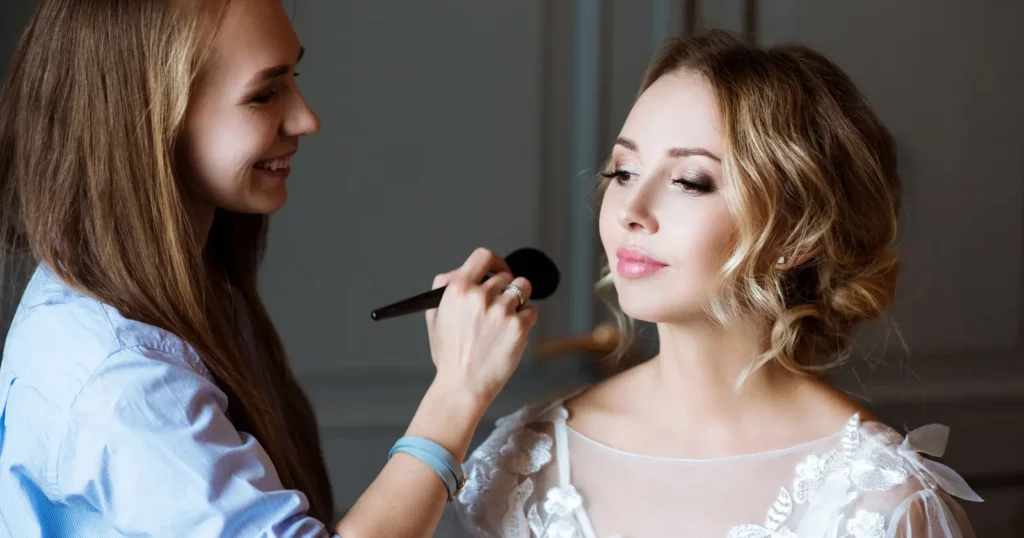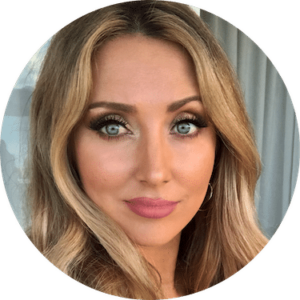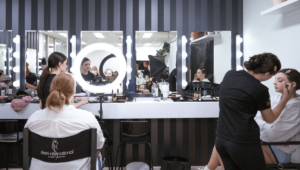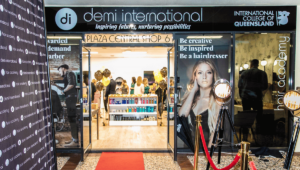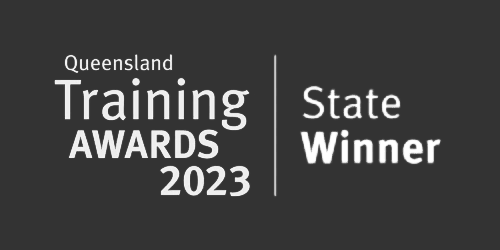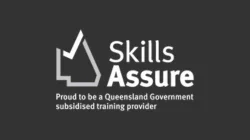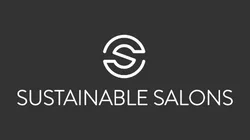For many beauty professionals, a passion for makeup artistry and the freedom of running their own business go hand in hand. And if you’re exploring the career pathways a qualified makeup artist can take, the appeal of freelancing has undoubtedly crossed your mind.
Today, we’ll learn more about the role of a freelance makeup artist and the steps required to become one. With advice from an expert on starting your own beauty business — and successfully maintaining it — you’ll learn what’s involved and the exciting possibilities of this career.
What does a freelance makeup artist do?
A freelance makeup artist is a beauty professional who works for themselves, applying makeup to clients in various settings. As the term ‘freelancer’ means a self-employed person who isn’t committed to an employer or long-term undertaking, this arrangement suits many professionals in the beauty and makeup industry.
Chelsey Harris is a Demi International trainer and owner of CK Hair and Makeup. With years of experience running her own business and freelancing hair and makeup services, she knows how diverse and flexible the role can be.
“Freelance makeup artists provide services in all areas, including commercial events, weddings, functions, sports gigs, and more,” she says. A freelance makeup artist might specialise in a sole type of makeup service or provide a range of beauty and hair services.
In addition to freedom in the work they do and when they do it, these beauty professionals also have flexibility in where they work. Running a home salon, providing mobile services, and renting a space in an established salon or studio are all possible.
The benefits and challenges of the role
As with any future career consideration, becoming a freelance makeup artist has pros and cons worth weighing up. However, most would agree that the outcome makes them worthwhile.
According to the career website Indeed, a makeup artist can earn around $41 an hour in Australia. And working for yourself as a freelancer can increase your earning potential even further. More importantly, it provides flexibility that’s not always possible when working for someone else’s business.
“The freedom to freelance is great because you choose your work hours,” Chelsey says. “On the flip side, though, you often have to work weekends and other unfavourable times because of functions, events, and weddings. But, for people with kids or those who want weekdays free, you have much more availability.”
Freelancing — and building your own business from scratch — comes with other unique challenges. “Marketing my business was challenging, especially in the first few years,” Chelsey says. Becoming self-employed requires a lot of planning to ensure success, so a thoughtful approach is necessary.
Steps to becoming a freelance makeup artist
Pursuing a career as a freelance makeup artist can be rewarding. However, there are many more steps compared to gaining employment with an established business that you should be aware of.
Step 1: Earning a qualification
Choosing the right study path that aligns with your career goals is vital, especially if freelancing is in your future. Although not a requirement in Australia, becoming a qualified makeup artist with a qualification is the best place to begin. This proves your credibility to future clients and potential employers and gives you a solid skillset to launch your career with.
Chelsey recommends the Diploma of Screen & Media – Specialist Makeup [CUA51020] for freelancers who want to provide a broader scope of services. “This qualification includes the study of makeup and hairstyling that are more appropriately teamed together for this industry,” she says.
Otherwise, the Dual Certificate III in Beauty with Makeup Specialty [SHB30121 & SHB30221] is the best route for those wishing to specialise in makeup and beauty.
After gaining their initial qualification, makeup artists usually commit to a lifetime of learning and upskilling. Thankfully, there’s always a range of courses and qualifications available to choose from.
Step 2: Gaining experience
With a booming beauty industry, a budding makeup artist has many avenues for gaining experience. At first, you may volunteer your time, working alongside an experienced artist. Otherwise, offering discounted makeup and beauty services as you build your skills is another popular approach.
If you plan on working alone, having this experience and a recognised qualification is the key to becoming a successful makeup artist.
Step 3: Create a portfolio
The best way to demonstrate your makeup artistry skills is with a portfolio or visual collection of your work. Digital and online portfolios are preferred today, and even without years of experience, they are a great way to show off your skills. The best portfolios establish your versatility, talent, and professionalism as a makeup artist.
Step 4: Networking
Building a network of fellow beauty and makeup professionals is vital when you’re working on your own. Attending conferences, workshops, and other in-person events and connecting on social media platforms like Instagram and LinkedIn helps create a solid network.
Step 5: Setting up a business
As with any other industry, many elements are involved in starting a beauty business. Being prepared means avoiding the common challenges others face.
Consider things like creating a business plan, analysing finances and cash flow, and understanding the legal and tax requirements. For advice and the required steps, check out the Australian Government’s guide to starting a business.
For beauty services specifically, Chelsey has many valuable tips. “Always get a non-refundable booking deposit, charge for travel, and widen your zone so you can reach more clients, especially when you’re launching your business.”
Maintaining a successful freelance business
After you’ve become established and are enjoying an exciting new profession, there’s still work to be done. We asked Chelsey for advice on maintaining a successful career as a freelance makeup artist.
- Stay on top of admin.
Although not always glamorous, general administrative duties are vital to keep up with if you want to run a successful business. “Stay on top of your bookwork,” Chelsey advises. “Ensure you’re paying your PAYG on time, and don’t let anything slip.”
- Create a solid reputation.
Reputation is everything when you run your own business, and it requires ongoing efforts to maintain. “Be known for your punctuality,” Chelsey says. As the face of your brand, it’s essential to deliver a high level of customer service.
- Keep your equipment clean.
“With clean equipment, you have a more appealing business,” Chelsey says. Not only is it nice for your customers to have, but it keeps your costs down, too. Well-maintained tools require less frequent replacing and repairing, so treat your workspace respectfully.
Turning your talent into a successful career
Becoming a qualified makeup artist opens many doors, and freelancing is an appealing one. With the freedom to choose your clients, work schedule, and the services you provide, there are a lot of benefits to enjoy.
Demi International can help you gain the qualifications to become a freelance makeup artist, so speak to us today about the possibilities.

